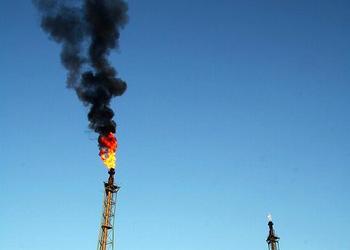
BANGKOK, Thailand, February 5, 2013 (ENS) – Officials from 19 Asian countries are cooperating to reduce the impact of short-lived climate pollutants in the Asia-Pacific region.
At a United Nations-backed meeting Monday, the officials began discussions on how best to reduce these air pollutants, which include black carbon, methane and tropospheric ozone as well as some hydrofluorocarbons, refrigerants that replaced even more damaging chemicals.
These pollutants are responsible for a substantial portion of climate change and have detrimental effects on human health, agriculture and ecosystems.
The meeting, which is hosted by the UN Environment Programme, and the governments of Bangladesh and Japan, is being held under the auspices of the Climate and Clean Air Coalition.
This is the first time that the challenge of short-lived climate pollutants has been tackled collectively at an Asia-wide meeting.
The one-year-old Climate and Clean Air Coalition is a voluntary global effort bringing together 28 partner countries, intergovernmental organizations and representatives of the civil society and the private sector who are working to reduce these pollutants.

“We look forward to welcoming all countries in Asia and the Pacific into the Climate and Clean Air Coalition to scale up the work and join forces with the other partners in this effort to address the challenge of short-lived climate pollutants and deliver rapid and multiple public health, food and energy security, as well as near-term climate benefits,” said UNEP Executive Director Achim Steiner.
During the meeting, participants will discuss existing measures that can be quickly taken up and integrated into strategies for economic development and environment protection.
Bangladesh’s Minister for the Environment and Forests Dr. Hasan Mahmud said, “Bangladesh has been working for the last few years towards modernization of brick kilns, improvement of millions of cook-stoves, improvement of rice parboiling systems, setting up of air quality monitoring mechanisms and adoption of relevant enabling environmental documents.”
The Japanese Vice-Minister for Global Environmental Affairs Dr. Ryutaro Yatsu added, “Japan is engaged to support CCAC and will contribute to the actions focused on short-lived climate pollutants, cooperating closely with partner countries and organizations, with our knowledge and experiences both in policy making and research.
“We are pleased to support the expansion of the Coalition to Asia and the Pacific because it is really meaningful in light of the promotion of sustainable development in the region,” Yatsu said.
On January 25, more than a dozen ministers from Climate and Clean Air Coalition partner countries jointly announced they will work with oil and gas companies worldwide to reduce venting, leakage, and flaring of natural gas from oil and gas operations.

The coalition estimates that over eight percent of total worldwide natural gas production is lost annually to venting, leakage, and flaring.
In addition to U.S. $27 to $63 billion in energy and economic losses, these activities result in nearly two gigatons of CO2 equivalent of greenhouse gas emissions per year, over 80 percent of which are methane emissions – making oil and gas operations the second-largest source of global anthropogenic methane emissions behind agriculture.
Flaring releases substantial amounts of black carbon, which is particularly harmful to human health and areas like the Arctic.
Initial CCAC engagement with interested oil and gas companies is beginning and will accelerate over the coming months.
Reducing short-lived climate pollutants by 2030 could avoid two million premature deaths and annual crop losses of over 30 million tons each year, according to a study released in 2011 by the UN Environment Programme, UNEP.
The reduction of these pollutants would also help to slow down climate change by 2050 and deliver climate benefits at a regional level, the UNEP study shows.
The UNEP study found that Asia is one of the regions that could benefit the most from such reductions, as black carbon measures targeting the transport sector would improve air quality, and reducing methane emissions from coal mines would benefit crops.
Reducing levels of these short-lived climate pollutants would slow the melting of glaciers in the Himalayas and reduce disruption of the South Asian monsoon, UNEP said.
The meeting is part of the Fourth Governmental Meeting on Urban Air Quality in Asia, held every two years and organized by UNEP and Clean Air Asia to inform governments on developments in urban air quality management and to harmonize approaches among Asian countries in tackling urban air pollution.
Copyright Environment News Service (ENS) 2013. All rights reserved.
© 2013, Environment News Service. All rights reserved. Content may be quoted only with proper attribution and a direct link to the original article. Full reproduction is prohibited.
